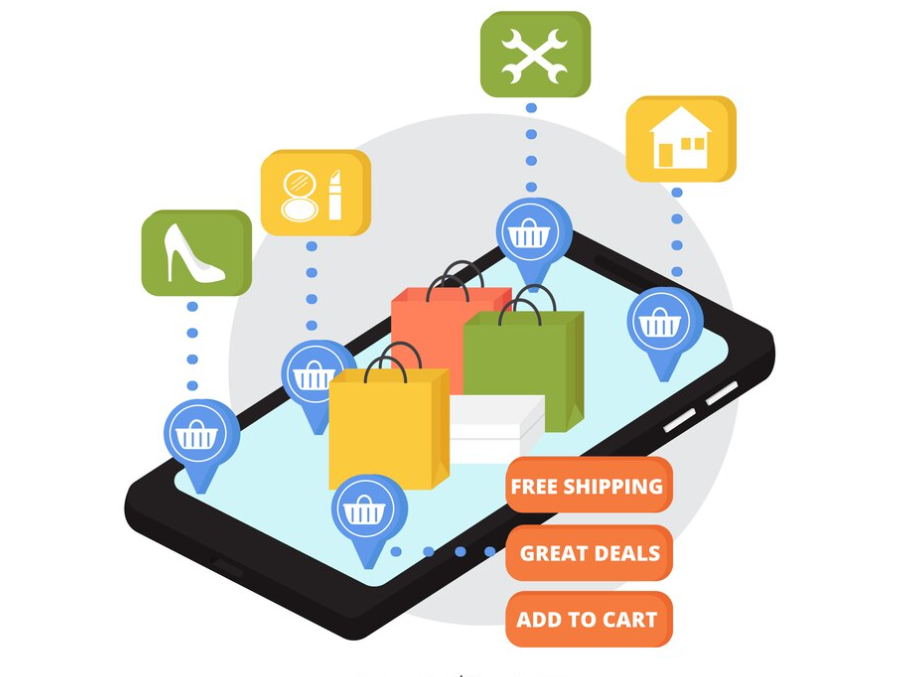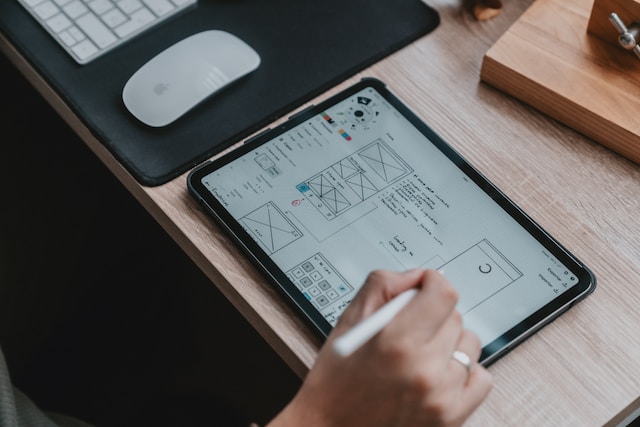Table of Contents
In this article, let’s take a look at how e-commerce apps can help increase sales in 2024 and beyond.
Today, mobile devices play a significant role in the daily lives of consumers, especially in online shopping.
While in the past online businesses only focused on mobile-friendly design to attract mobile shoppers, they are now expanding into the e-commerce space. Nearly 9 out of 10 people have an online shopping app on their phone or computer, and nearly a third of them actually prefer to shop this way over shopping directly in a store or through a website on their phone or computer.
A well-designed and feature-rich e-commerce app can help online stores increase their sales. Additionally, a coveted spot on a customer’s screen can also bring additional marketing opportunities for the brand.
First thing first,
What are E-Commerce Apps?
E-commerce apps, sometimes also called mobile commerce apps, are software that allows customers to shop from an e-commerce store.
E-commerce apps offer benefits for both businesses and customers. Brands can better engage with their customers in a professional space, and customers can control their experience in a personalized way. And thanks to platforms like these, developing mobile apps has also become relatively easy.
It is important to note that e-commerce apps are different from social commerce, which is the activity of creating a sales channel through social media, such as selling on Facebook or shopping through Instagram. While social commerce is growing and valuable, the term “E-commerce app” specifically refers to dedicated software tied to a specific brand.
YOU CAN REFER TO THE LIST OF THE TOP 5 BEST ECOMMERCE PLATFORMS THAT ARE CURRENTLY TRENDING HERE
What do E-commerce apps offer?
Although aspects such as presentation and design may vary between E-commerce platforms, most mobile E-commerce apps share a few common features – some of which are essential, and some of which are nice to have.
User and User Profile Management
Ease of registration:
- Implement a simple registration process that allows users to register via email, phone number, or social media account. Consider adding multi-factor authentication for security, such as fingerprint scanning.
User profile management:
- Provide users with a profile section to manage their personal information, including email, name, shipping address, purchase history, and wish list. Also include preferred payment methods for convenience.
Product discovery and searching
Search and filtering:
- Develop an advanced search and filter system with the help of AI to understand context, and different expressions (such as synonyms, abbreviations, misspellings, and related phrases), and can be executed with long search queries. Users should be able to easily find the product they are looking for, and filter results by brand, color, season, style, price, features, and more. You can add voice search functionality to keep up with current trends. For example, when a user types “navy blue running shoes for women” – the system will understand and return relevant results, even if they forget the brand name. Then the user can filter by size, brand, season, and price.
Product details:
- Display complete product information, including product name, size, price, shipping information, reviews, and estimated shipping time.

Shopping cart and checkout
Shopping cart: Allows users to add products to their shopping cart, providing flexibility and storing items that can be purchased in the future. Make sure that cart data is synced across all devices to provide a consistent, seamless shopping experience.
Checkout: Streamline the checkout process with saved payment options, auto-fill data, and clear shipping schedules, making it as easy as possible for users to complete a purchase.
Order tracking: Provide order tracking functionality, allowing users to track the status of their order within the app. Information about the progress of the order and estimated delivery time is updated in real-time.
Multiple payment methods: Offering multiple payment methods helps create an easy and seamless checkout process. This also gives customers flexibility – they can choose between paying with a credit card or paying on delivery (COD).
Communication and engagement
Push notifications: Implement push notifications to notify users about promotions, discounts, and new product launches, as well as update order information, shipping information, and delivery notifications.
Customer support: Provide customer support options, including live chat, chatbot, and help center to resolve user inquiries, handle complaints related to orders or product information, and provide product usage instructions. You can optionally outsource customer support services for large-scale projects.
Integrate and administrate Social Media
Social media integration: Allow users to share products they are interested in with their friends and contacts on social media platforms, facilitating marketing activities.
Admin panel: Develop an admin panel to manage orders, customers, stores, promotions, and gifts. This dashboard should also provide management and filtering capabilities for administrators.
Customer ratings and reviews: Implement a system that allows users to rate products and leave feedback about their experience. This feature should be built on trust and help first-time buyers make informed decisions based on the experiences of others.

These features will lay the foundation for the development and success of your E-commerce apps. Keep in mind that once you’ve developed it, you should expand the app’s capabilities to meet the specific needs of your target audience and business sector.
Types of E-commerce Apps
When it comes to selling to consumers, there are four common types of e-commerce applications:
Business-to-consumer (B2C): Mobile B2C apps are the most popular type of e-commerce app today. They connect businesses that sell goods and services with individual customers. Examples include online stores like Amazon, Lazada, Shopee, and so on.
Business-to-business (B2B): Mobile B2B apps are for businesses that sell products or services online to other businesses. It could be an online store for office furniture, a subscription site for selling business software, or an e-commerce website for wholesale product transactions. Examples include Alibaba, Hotdeal, Tiki, and so on.
Consumer-to-consumer (C2C): C2C e-commerce apps connect two or more consumers so they can exchange products or services with each other. Examples include eBay, Facebook Marketplace, Shopee, and so on.
Consumer-to-business (C2B): C2B e-commerce apps facilitate transactions from consumers to businesses, helping consumers provide services or assets to businesses. These apps, such as GitHub, provide a platform for professionals to showcase their skills and build relationships with businesses. Businesses benefit from the unique talents and expertise available on such channels. Examples include Airbnb, and so on.
Benefits of Developing E-Commerce Apps
Whether or not E-commerce apps is the right fit for your business model, developing one can be beneficial for both businesses and customers. Here are some of the key reasons why:
Speed: E-commerce apps typically store their data locally on the mobile device, which makes them faster and more user-friendly than mobile websites. Faster load times can lead to lower bounce rates, which means customers are less likely to abandon their carts and businesses are more likely to increase revenue with a high-speed mobile app.
Visibility: Having your e-commerce app front and center on your customers’ mobile screens is a big win. And thanks to features like push notifications, online stores can reach customers anytime, even when they’re interacting with another app. Push notifications are an easy way to encourage customers to come back to your app, especially if you use them to offer exclusive deals or discounts.
Personalization: E-commerce apps allow customers to personalize their shopping experience, such as saving sizes and shopping preferences. In return, businesses can better understand what their customers want and adjust real-time interactions to meet the specific preferences of each customer.
Developing E-Commerce Apps with Co-Well Asia E-Commerce Suite
It’s no coincidence that e-commerce apps have become so popular. With just a few essential “weapons” like push notifications, shopping carts, multiple payment methods, and customer support, these apps make it incredibly easy for customers to spend money with your brand.
A dedicated mobile app can provide great benefits for e-commerce businesses, not just in terms of revenue and branding, but also in building lasting customer engagement with just a single click. And the best part? Customers can personalize their experience to ensure they get exactly what they want.
If you’re looking for a solution for your E-commerce ecosystem, don’t hesitate to contact us for further expert advice. We specialize in providing E-Commerce Solutions https://www.ec-suite.vn/ and Development Services that can help your business thrive.









